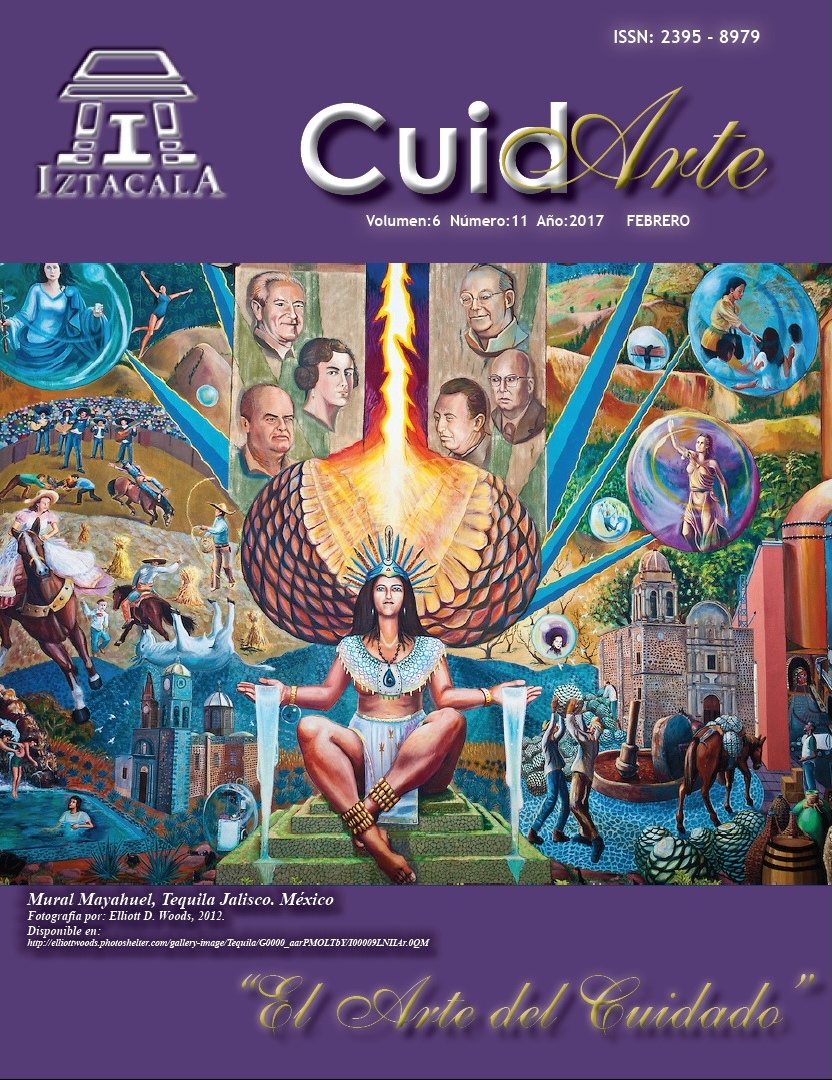Theorization and diagnosis in Nursing: the evolution of Nursing thought
Main Article Content
Abstract
The nursing discipline is currently undergoing
significant changes. However, it is crucial for nurses
to ask themselves whether this transformation is
real. Are they really moving toward the discipline’s
stated objectives, or are they in a self-imposed pause
as they are trying to assimilate their capacities
and wondering who they are and where they are
going? This dilemma places nursing at the cusp
of transcending its current limits. It is a dynamic
and complex situation—a process of disciplinary
transition, revalidation, and transformation that
goes hand in hand with the current reorientation of
scientific research toward the transcendence of care.
To this aim, nursing faces a double task: not only to
produce scientific literature, but also to consume it.
The production and amassing of nursing theories
and articles are of no use unless they lead nurses
to a practical outcome in which they consume
the literature that they produce. Failing this, the
discipline faces both the flight of knowledge and
a backlog in the updating of said knowledge. The
theory of knowledge in the field of care has evolved
in such a way that has irreversibly revolutionized
the discipline of nursing in terms of both training
and practice. Therefore, it has become essential
for nurses to utilize all resources at their disposal,
to appreciate contemporary efforts to produce
scientific nursing research, and to recognize that
all research—regardless of its paradigm—provides
knowledge and strengthens the development of
nursing as a discipline and as a science.
Downloads
Article Details
References
(1) Saldaña-Rivera Andrea. Arquetipos de la enfermería en México. Perinatol. Reprod. Hum. [revista en la Internet]. 2012 Mar [consultado24 de mayo 2016] ; 26(1 ): 51-56. Disponible en: http://www.scielo.org.mx/scielo.php?script=sci_arttext&pid=S0187-53372012000100008&lng=es.
(2) Meleis A I. Theoretical Nursing: Development & progress. 2a. Ed. Lippincott; 1997. p. 674.
(3) Urra M. Avances de la ciencia de enfermería y su relación con la disciplina. Cienc. enferm. [Internet]. 2009Ago [consultado24 de mayo del 2016]; 15( 2 ): 9-18. Disponible en: http://www.scielo.cl/scielo.php?script=sci_arttext&pid=S071795532009000200002&lng=es.
(4) Watson J. The Nurse Theorists: 21st Century Updates-Jean Watson. Nur Scie Q 2002; 15(3): 214-219
(5) Real Academia Española, Diccionario de la lengua española, 23.ª ed. Madrid: Espasa, 2014. - See more at: http://www.rae.es/obras-academicas/diccionarios/diccionario-de-la-lengua-espanola#sthash.S8y4xLiS.dpuf
(6) Ciberindex, Gestión del conocimiento en cuidados de la salud. Web de la fundación index [serie en internet] [consultado 24 de mayo del 2016] Disponible en: http://www.index-f.com/lascasas.php
(7) Polit DF, Hungler BP. Investigación científica en Ciencias de la Salud. 6ª ed. México: McGraw-Hill; 2000.
(8) Gálvez Toro A. Enfermería basada en la evidencia. Cómo incorporar la investigación a la práctica de los cuidados. 1ª ed. Granada: Fundación Index; 2001.
(9) Reyes E. Fundamentos de enfermería. Ciencia, metodología y tecnología. 2ª. ed. Mexico: El Manual Moderno; 2015.
(10) NANDA International Nursing Diagnoses and Classification 2009-2011. Spain. Elsevier 2009.
(11) NANDA International Nursing Diagnoses and Classification 2012-2014. Spain. Elsevier 2012.
(12) Ciberindex, Gestión del conocimiento en cuidados de la salud. Degra: Declaracion de Granda sobre el conocimiento enfermero. Web de la fundación index [serie en internet] [consultado 27 de mayo del 2016] Disponible en: http://www.index-f.com/declaracion/documentos/DEGRA.pdf
(13) Oxford Dictionaries: Language matters. (Sitio web) [Serie en internet] [ 28 de mayo del 2016] Disponible en: http://www.oxforddictionaries.com/es/definicion/espanol/invisible1
(14) NANDA International Nursing Diagnoses and Classification 2015-2017. Spain. Elsevier 2015.
(15) Amezcua M. Investigación Aplicada a los Cuidados. Index de Enfermería. (online) 2010; vol.19, núm. 4: pp. 237-239. [consultado 28 de mayo del 2016] Disponible en: http://dx.doi.org/10.4321/s1132-129620120003000101
(16) Burns, N. Groove, S. Introducción a la investigación en enfermería. En: Investigación en enfermería. 3ª ed. España. Elseiver; 2012.1
(17) García RM, Gómez AMG, Aguilar PI, Velázquez DL, Soriano SM, Landeros OE. Tendencias y características de la investigación en enfermería publicada en México. Revista Universitaria ENEO-UNAM. 2011. Vol.8, núm8: pp 7-16. [consultado 30 de mayo del 2016] Disponible en: http://www.journals.unam.mx/index.php/reu/article/view/256411
(18) Leal LM. Defender la ciencia y la investigación ¿pero de quién? Rev. Paraninfo Digital. (online) 2013; vol. 18. [consultado 24 de mayo del 2016] Disponible en: http://www.index-f.com/para/nt18/t002.php1
(19) Pérez R. Los discursos del método científico. España. Fondo de Cultura Económica; 2014.
(20) Triviño V, Sanhueza O. Paradigmas de investigación en enfermería. Cienc. Enferm (online) 2005; vol.11, núm1. [consultado 20 de mayo del 2016] Disponible en: http://www.scielo.cl/pdf/cienf/v11n1/art03.pdf
(21) Veliz RL, Ceballos VP, Valenzuela SS, Sanhueza AO. Análisis críticodelparadigma positivista y su influencia en el desarrollo de la enfermería. Index Enferm. (online) 2012; vol.21, núm.4. [consultado 20 de mayo del 2016] Disponible en: http://dx.doi.org/10.4321/s113212962012000300010

